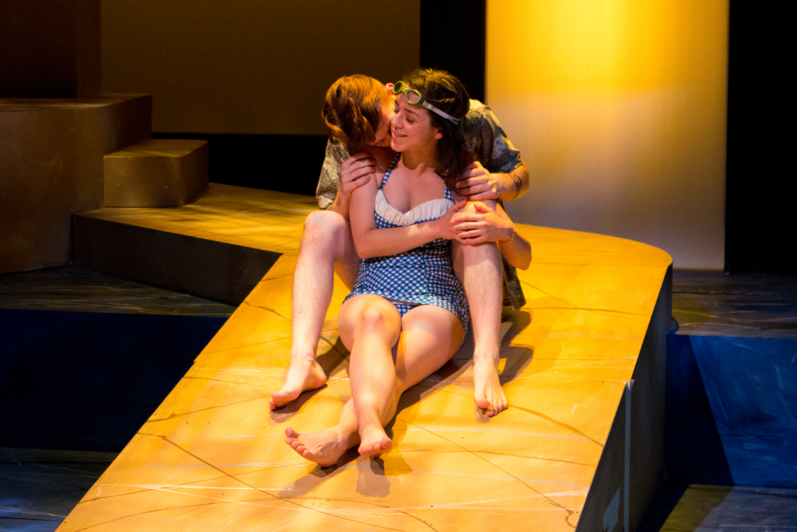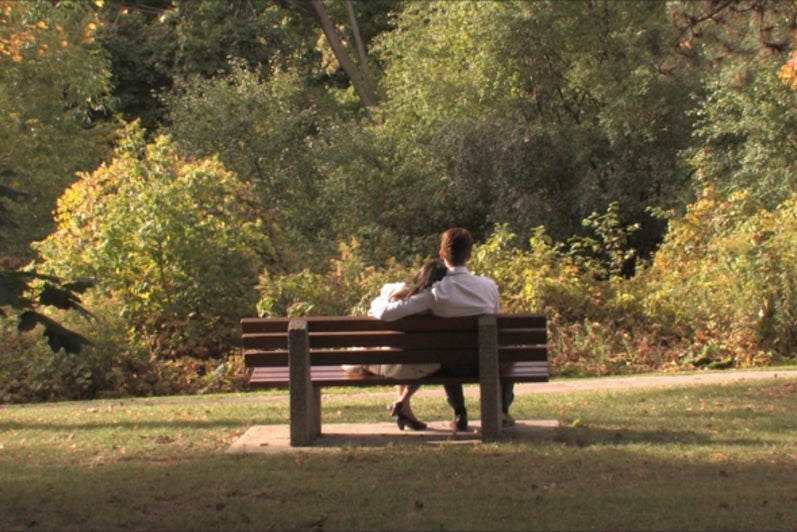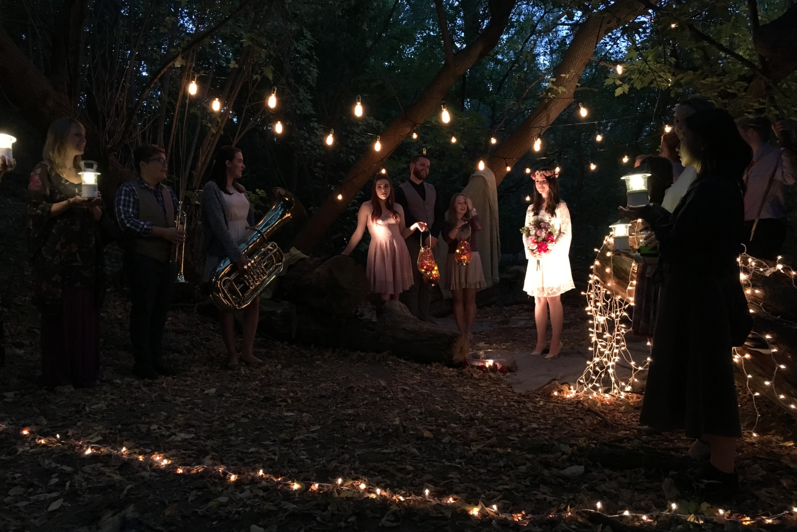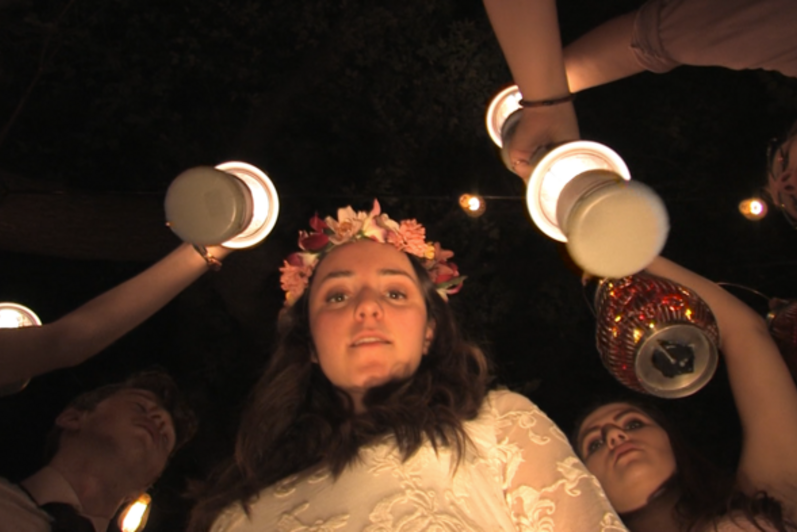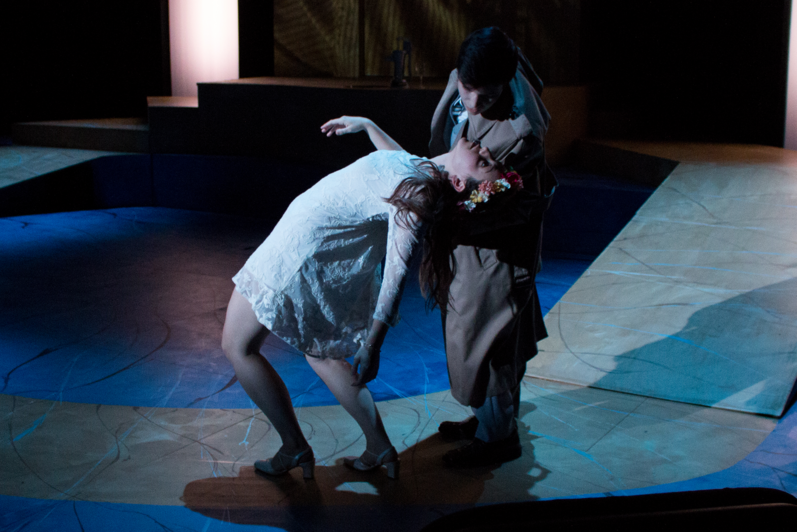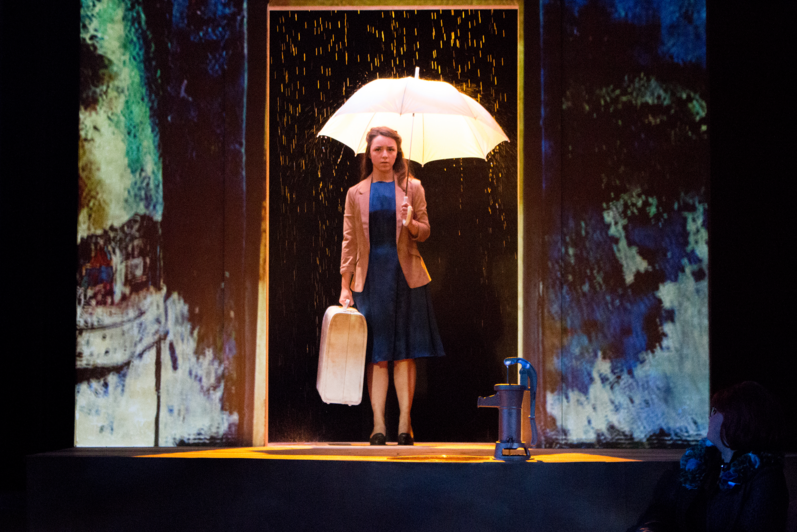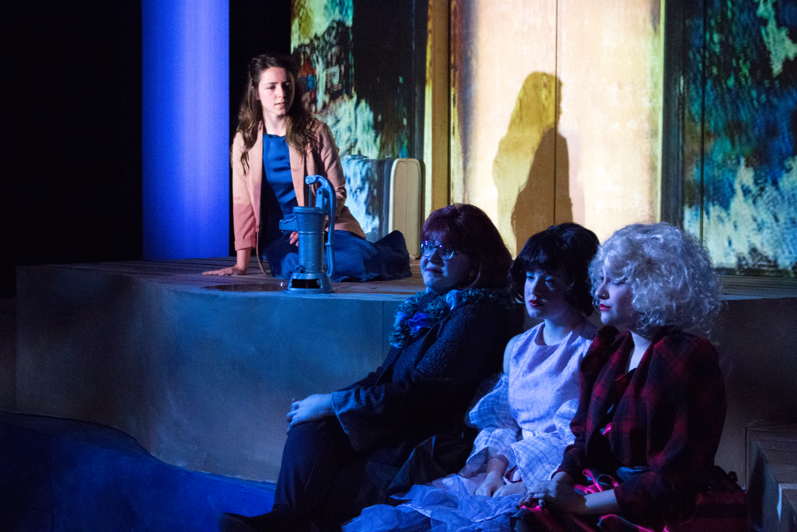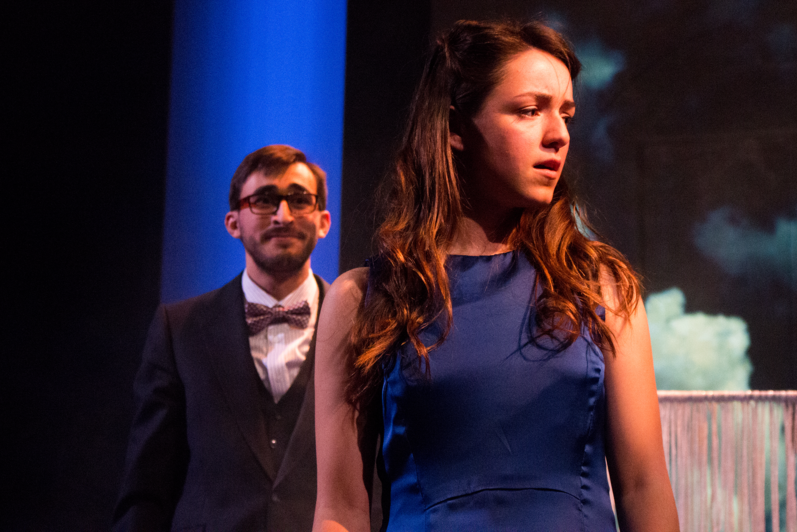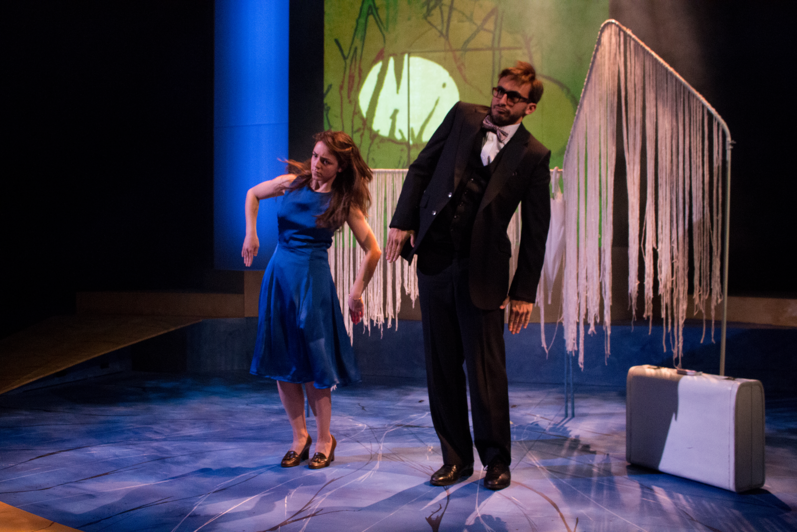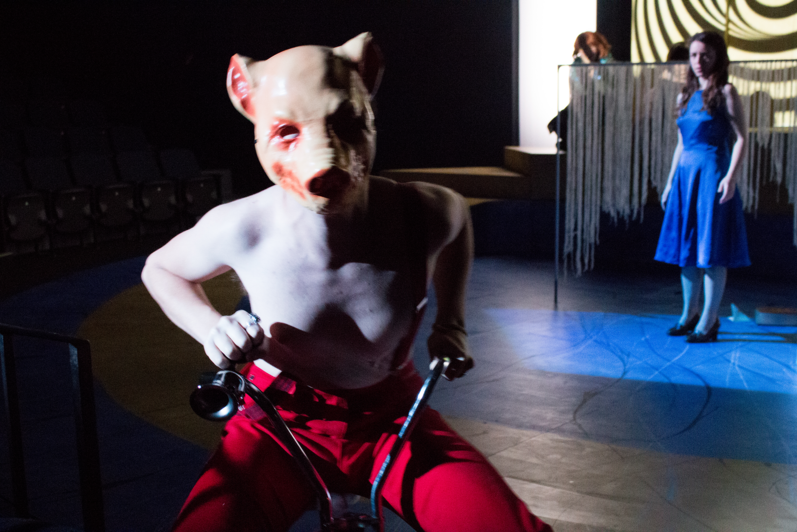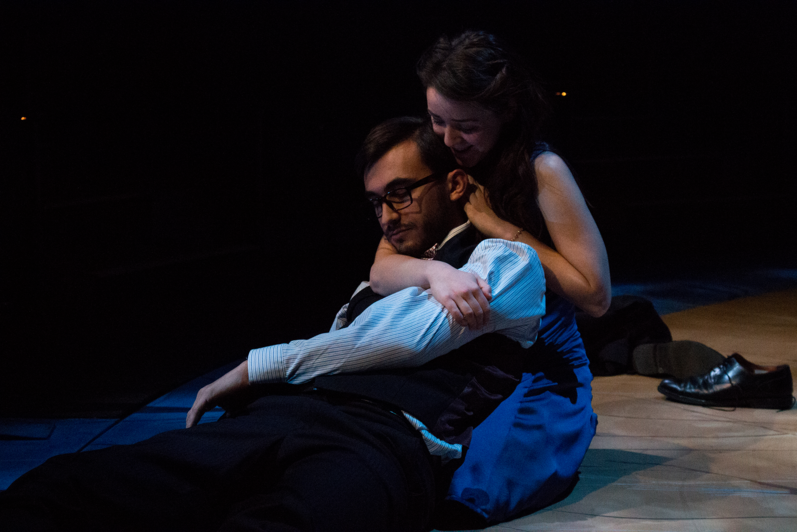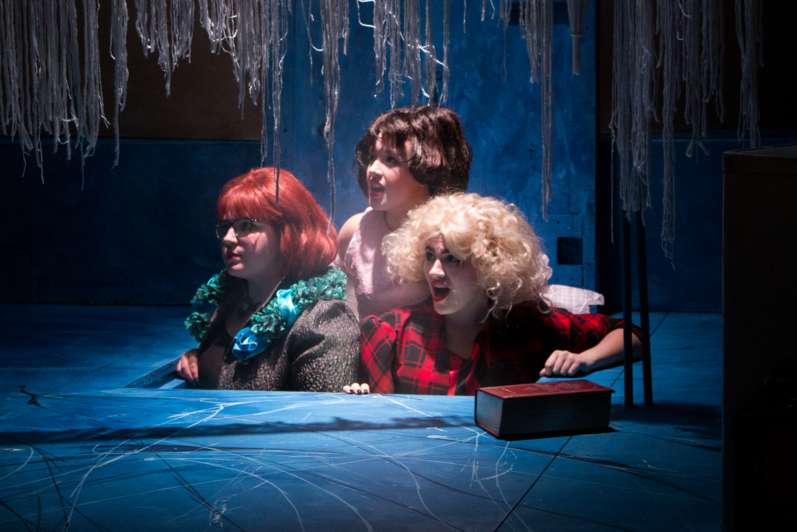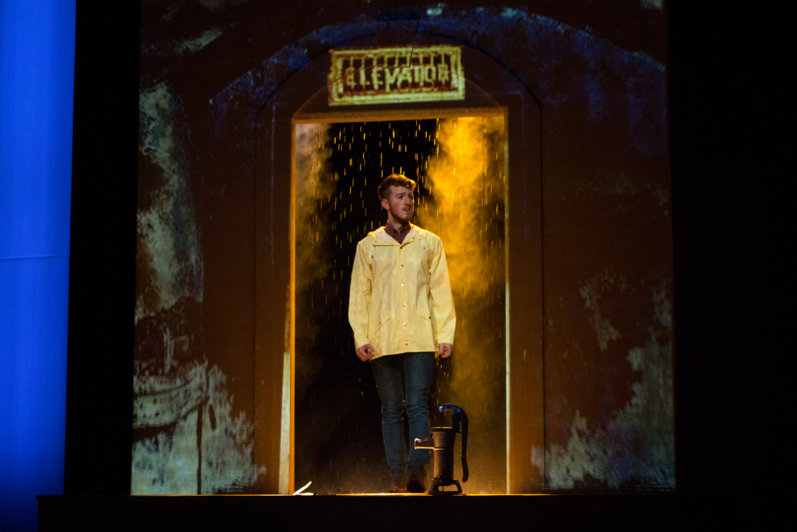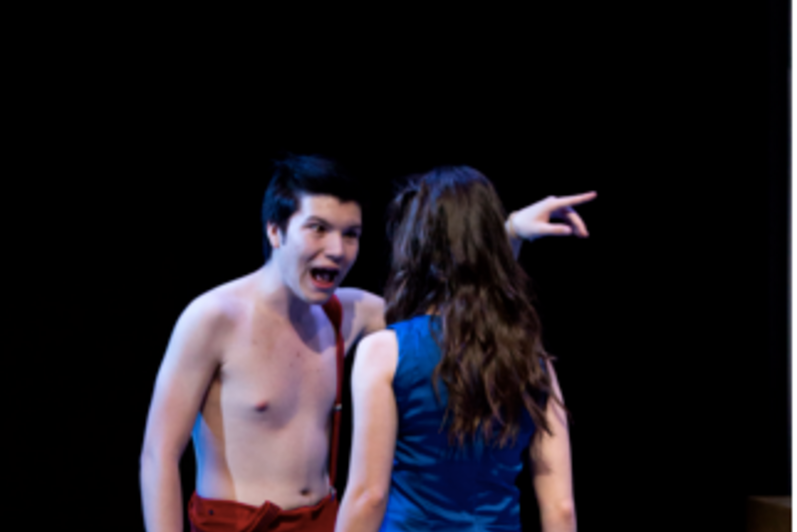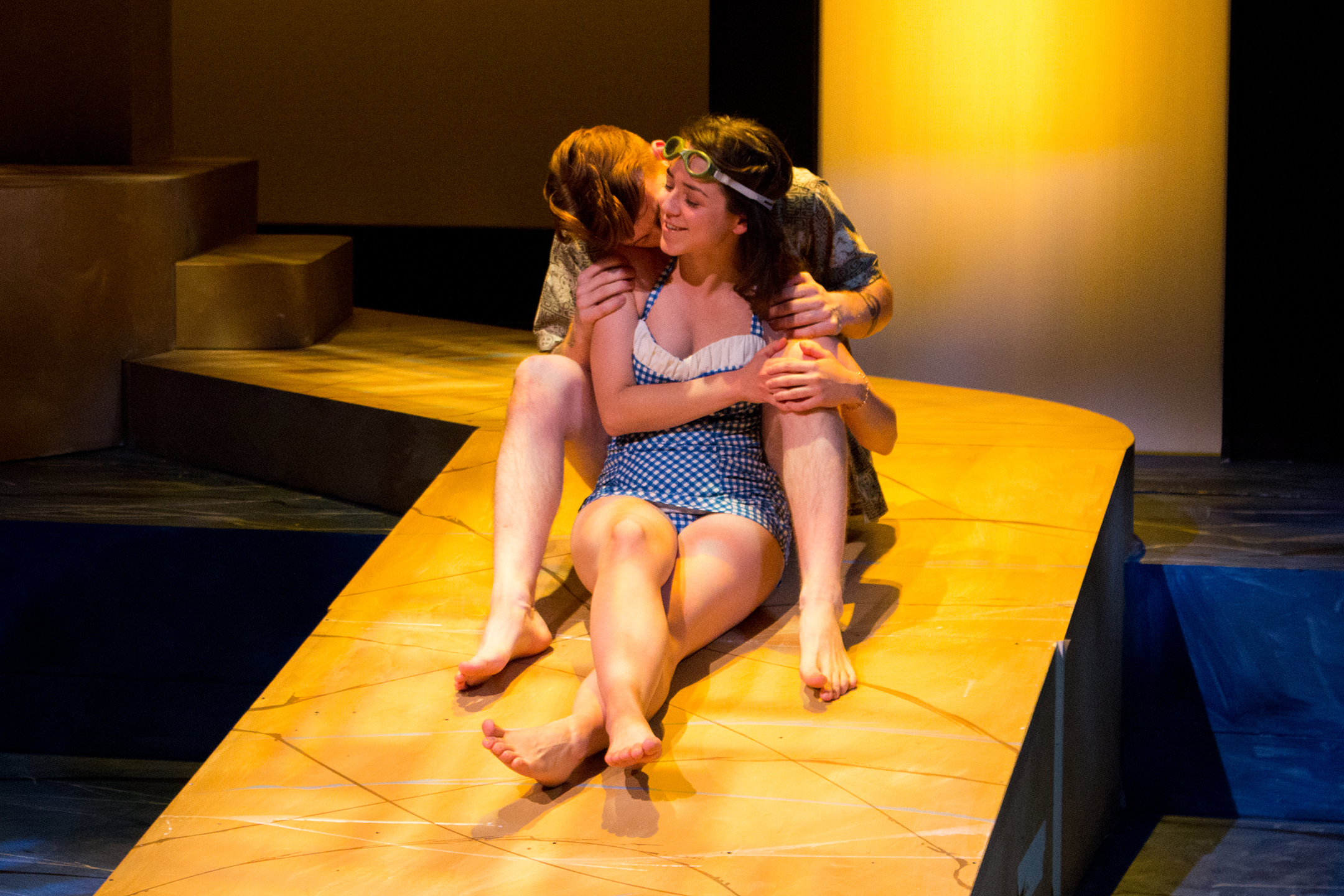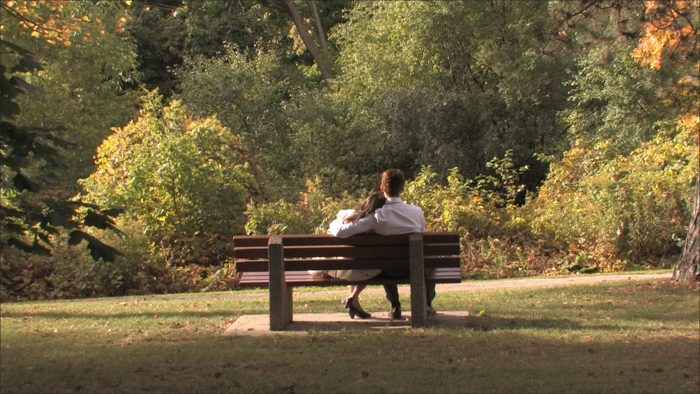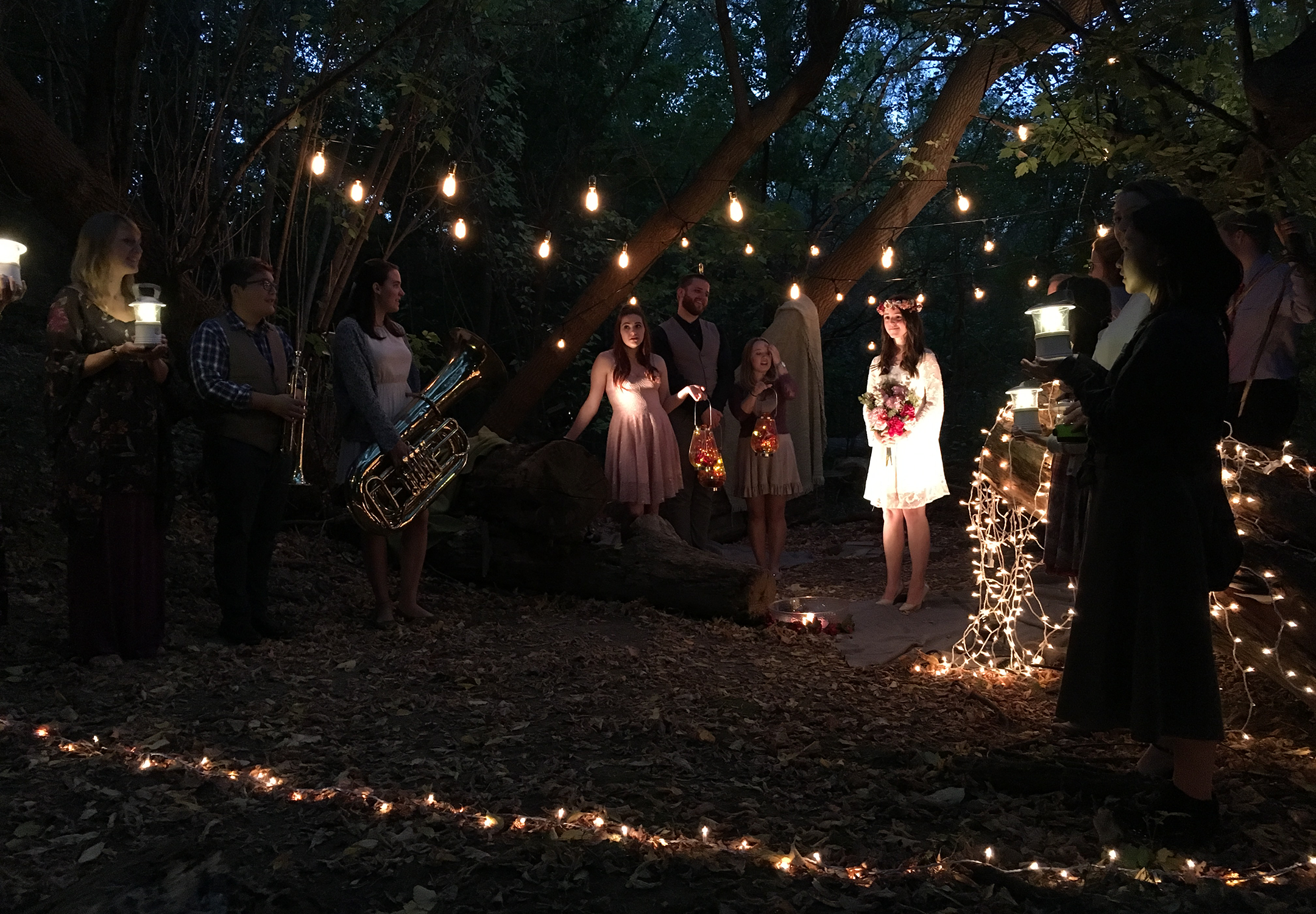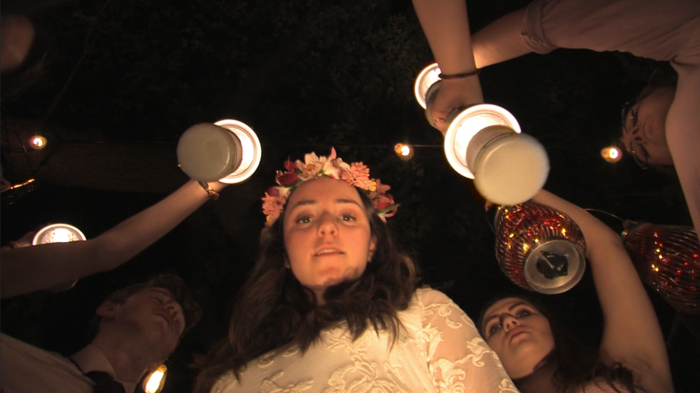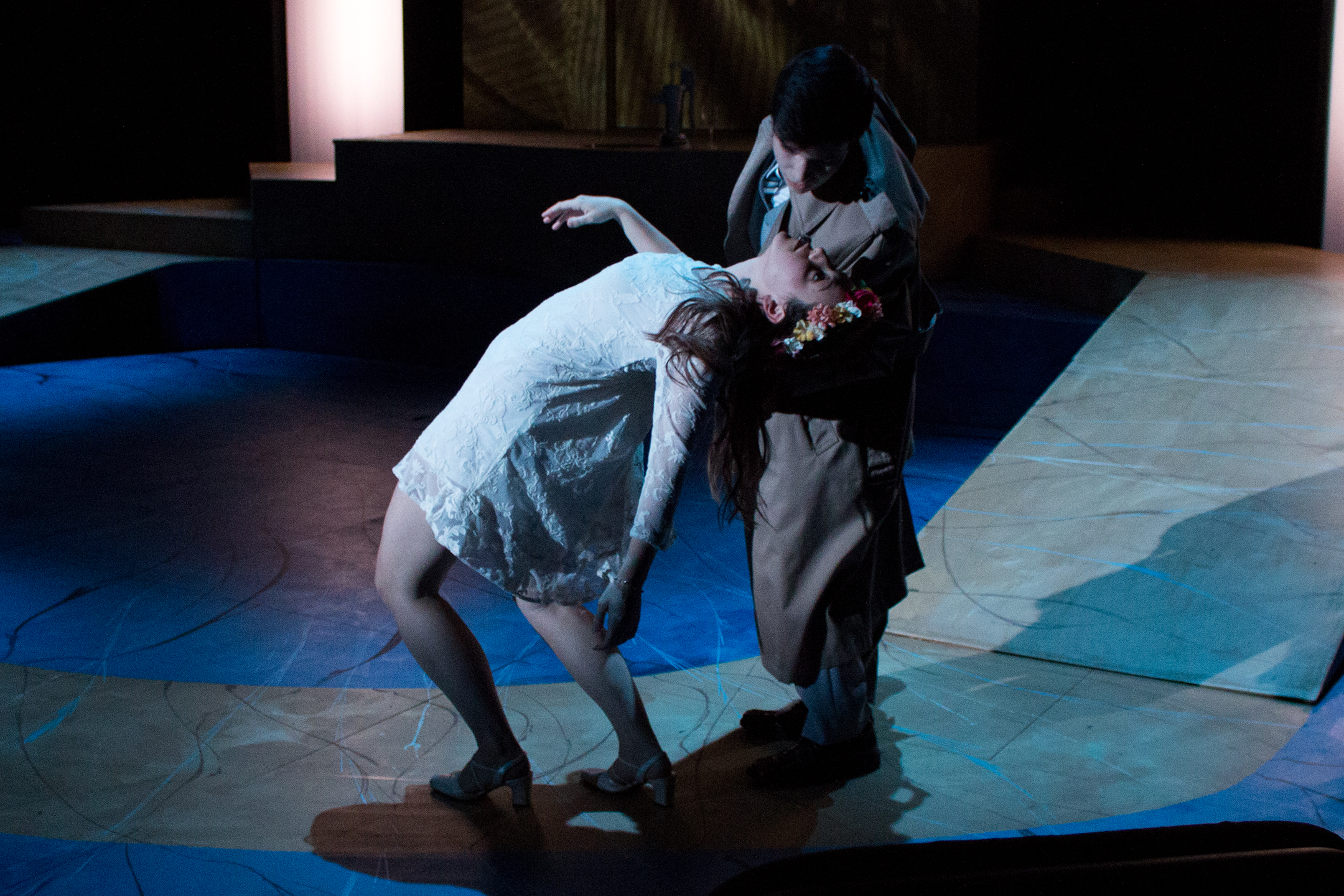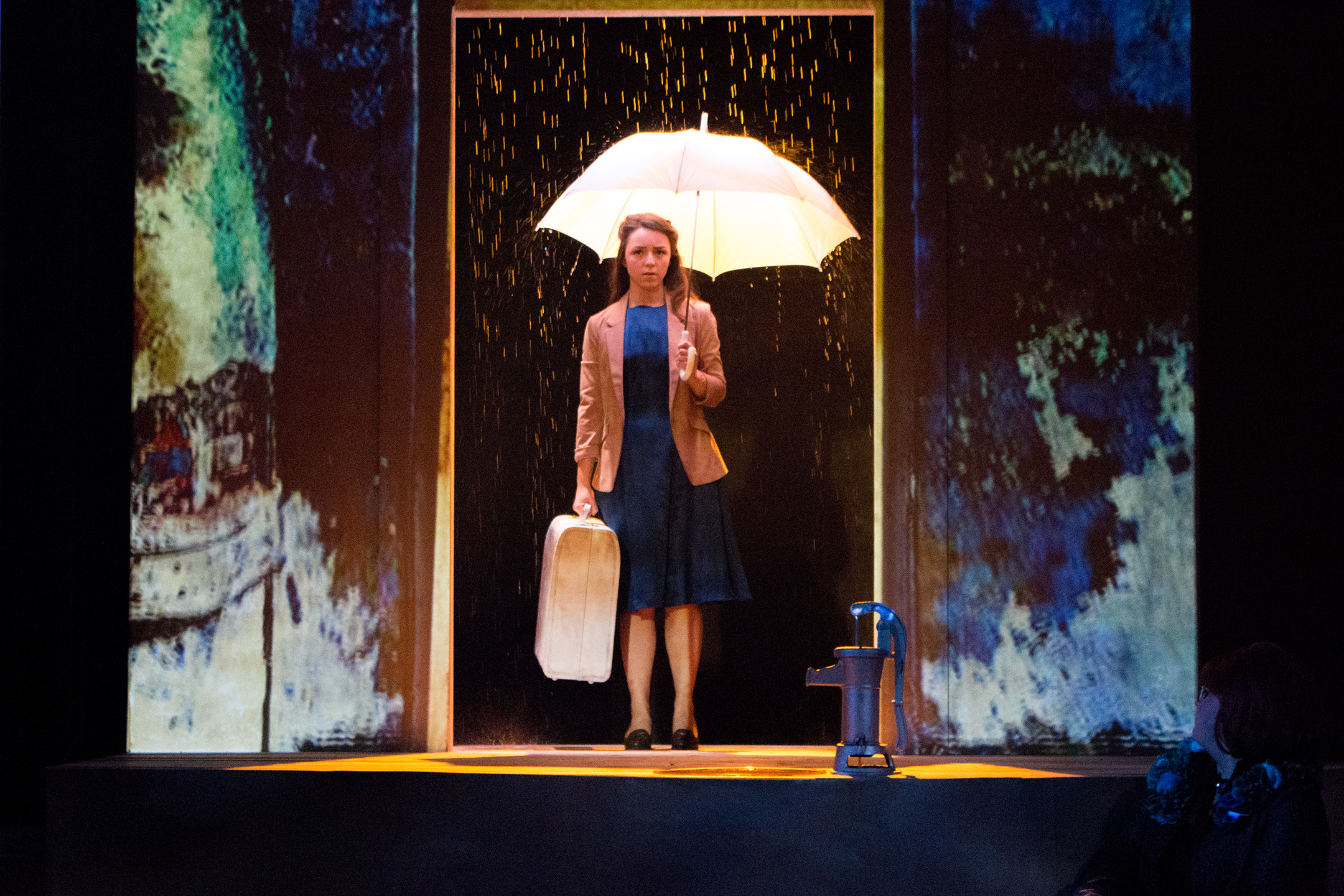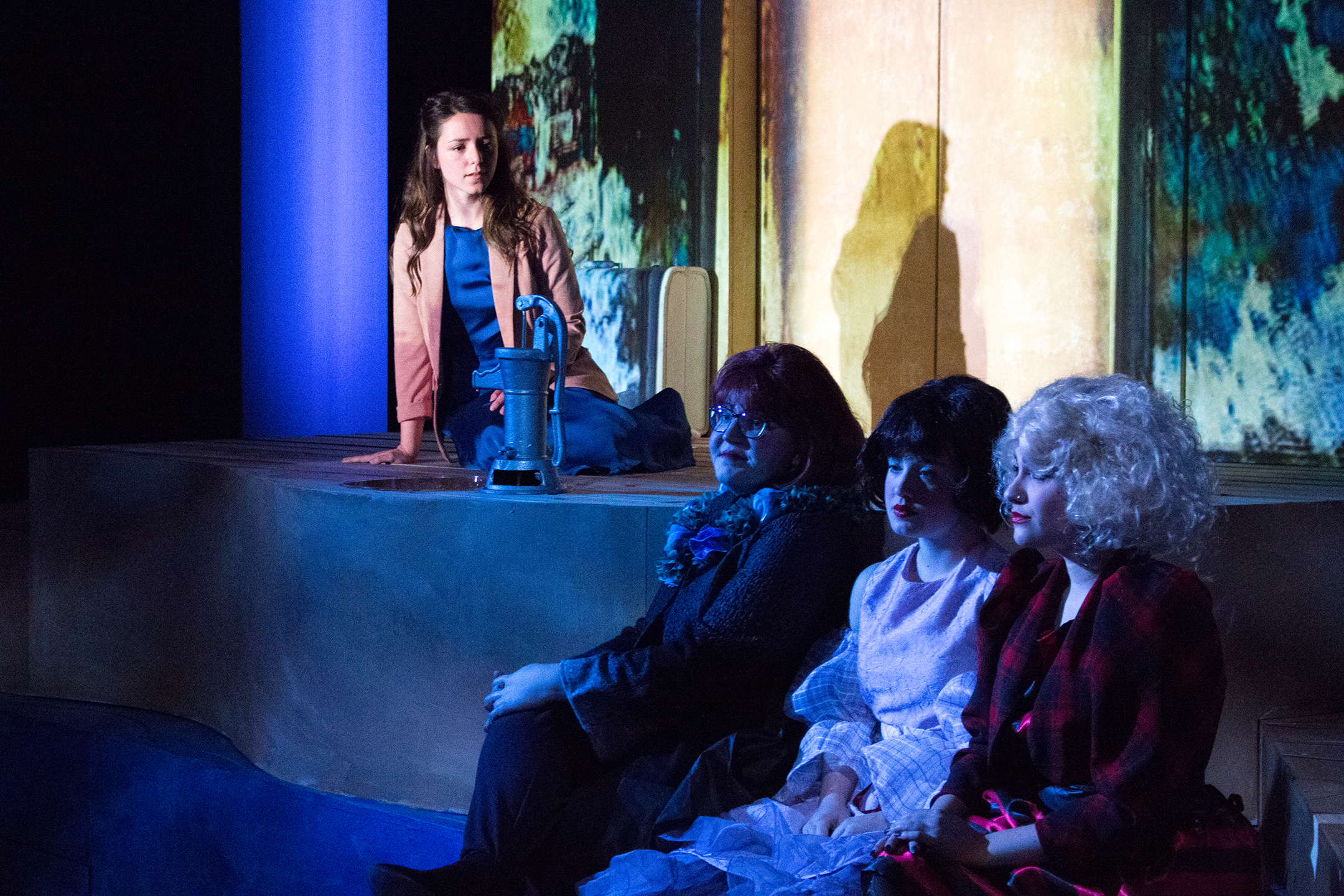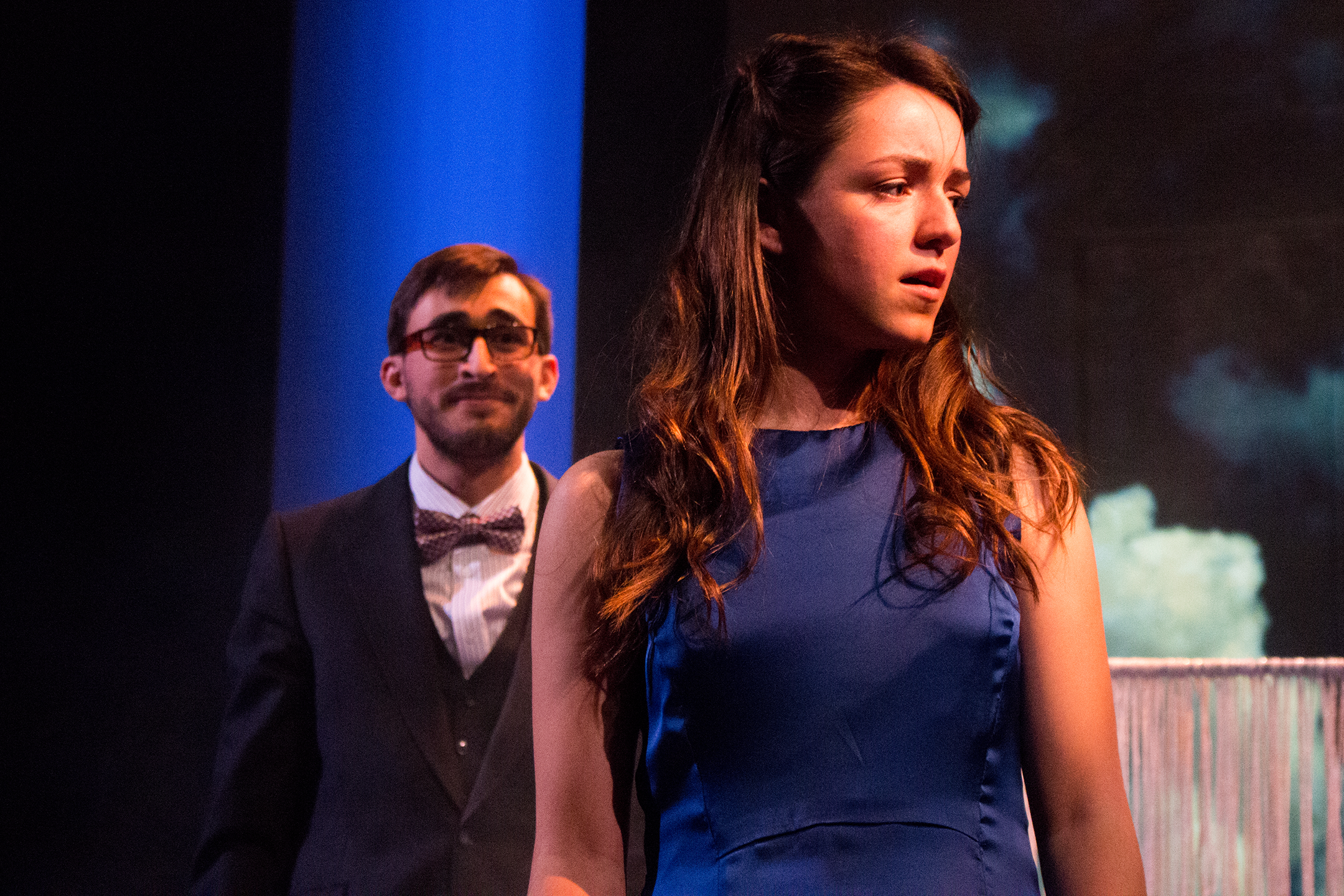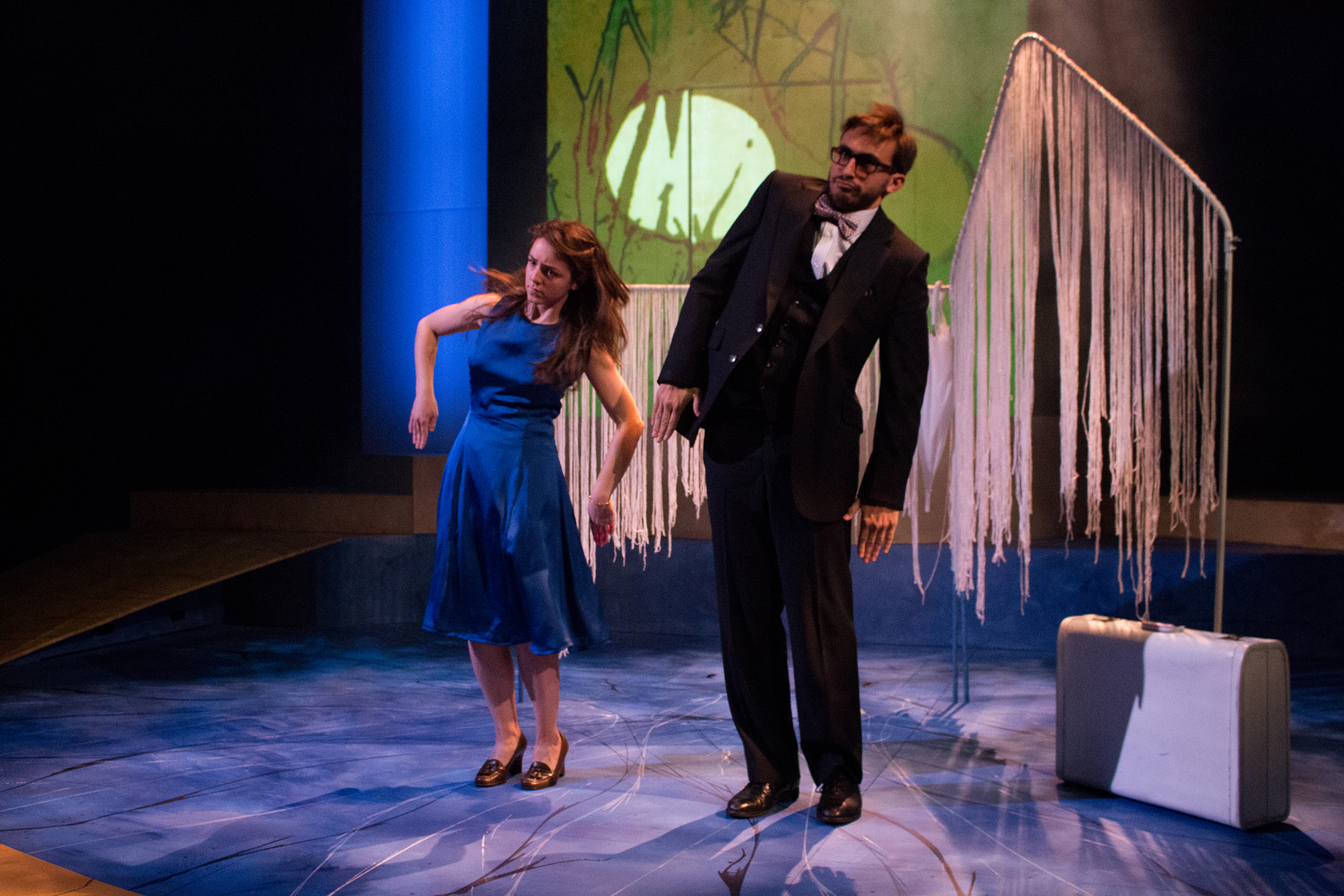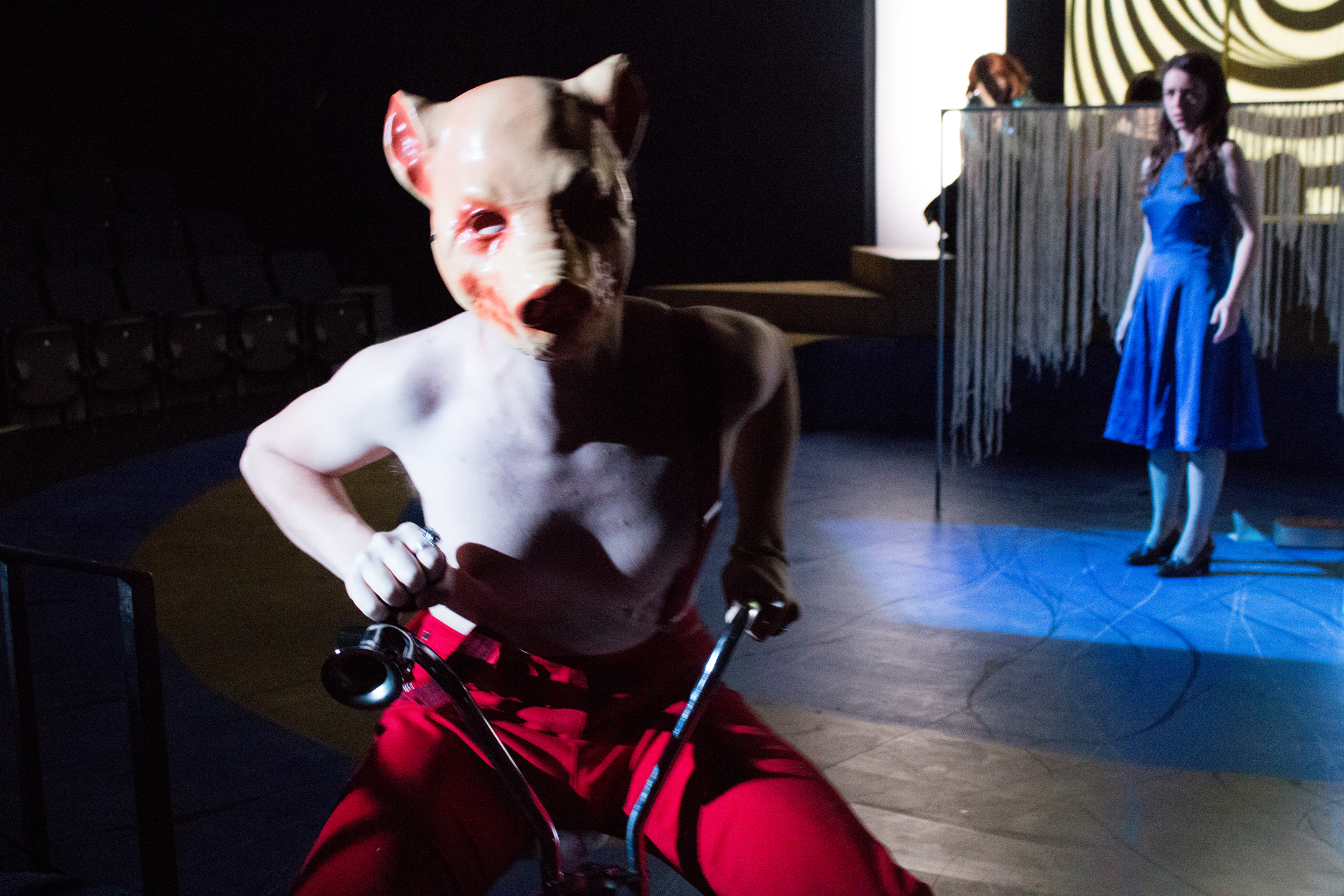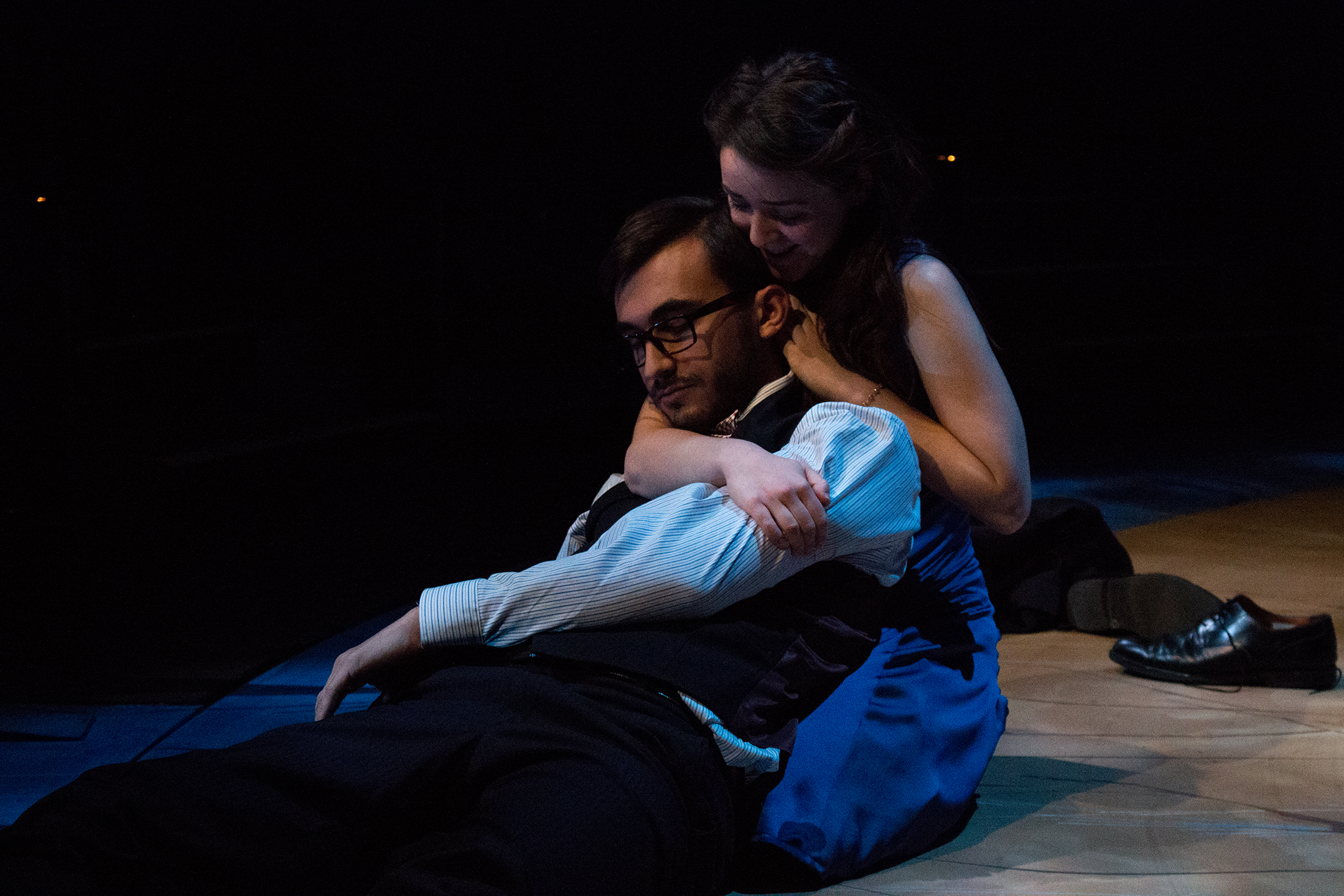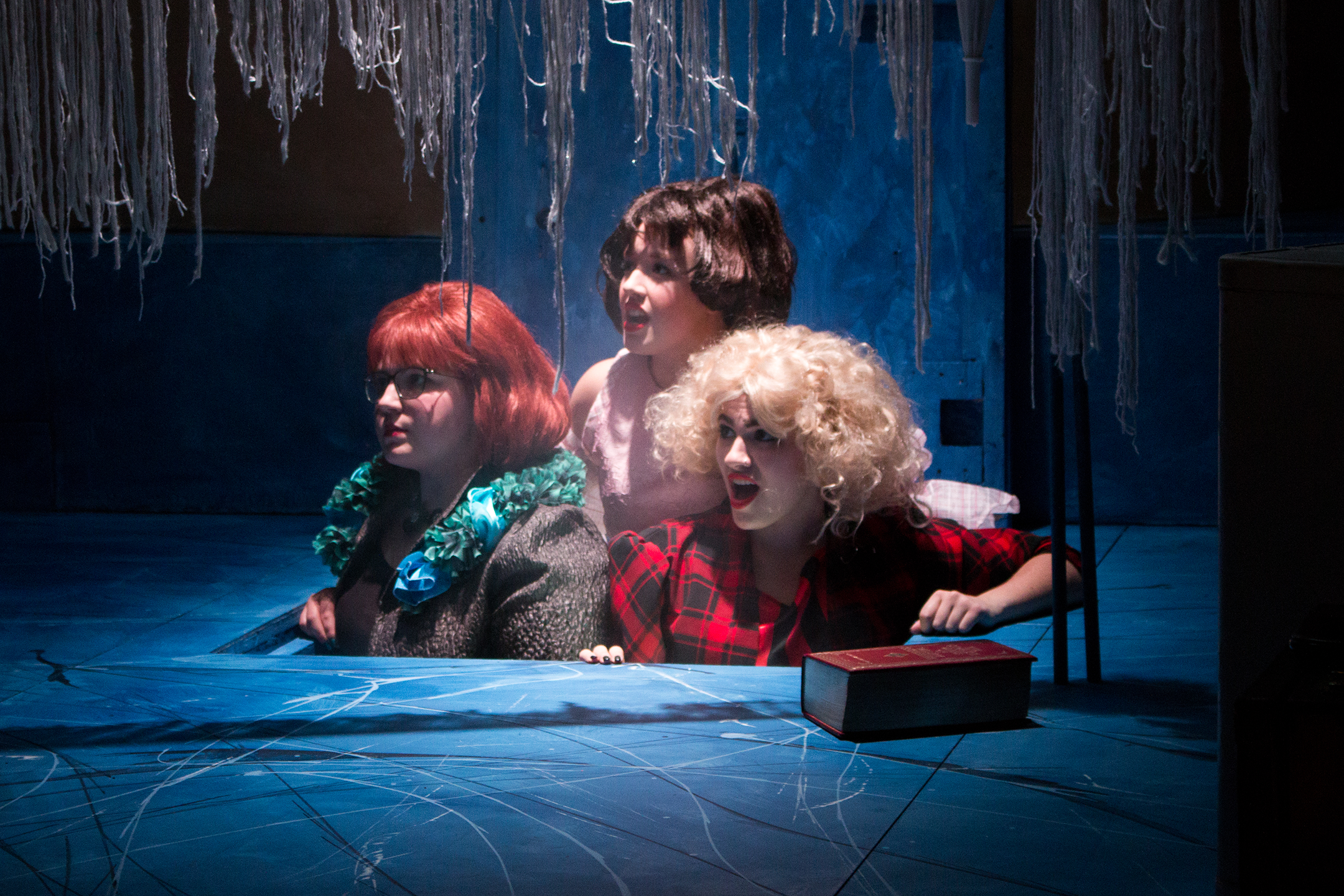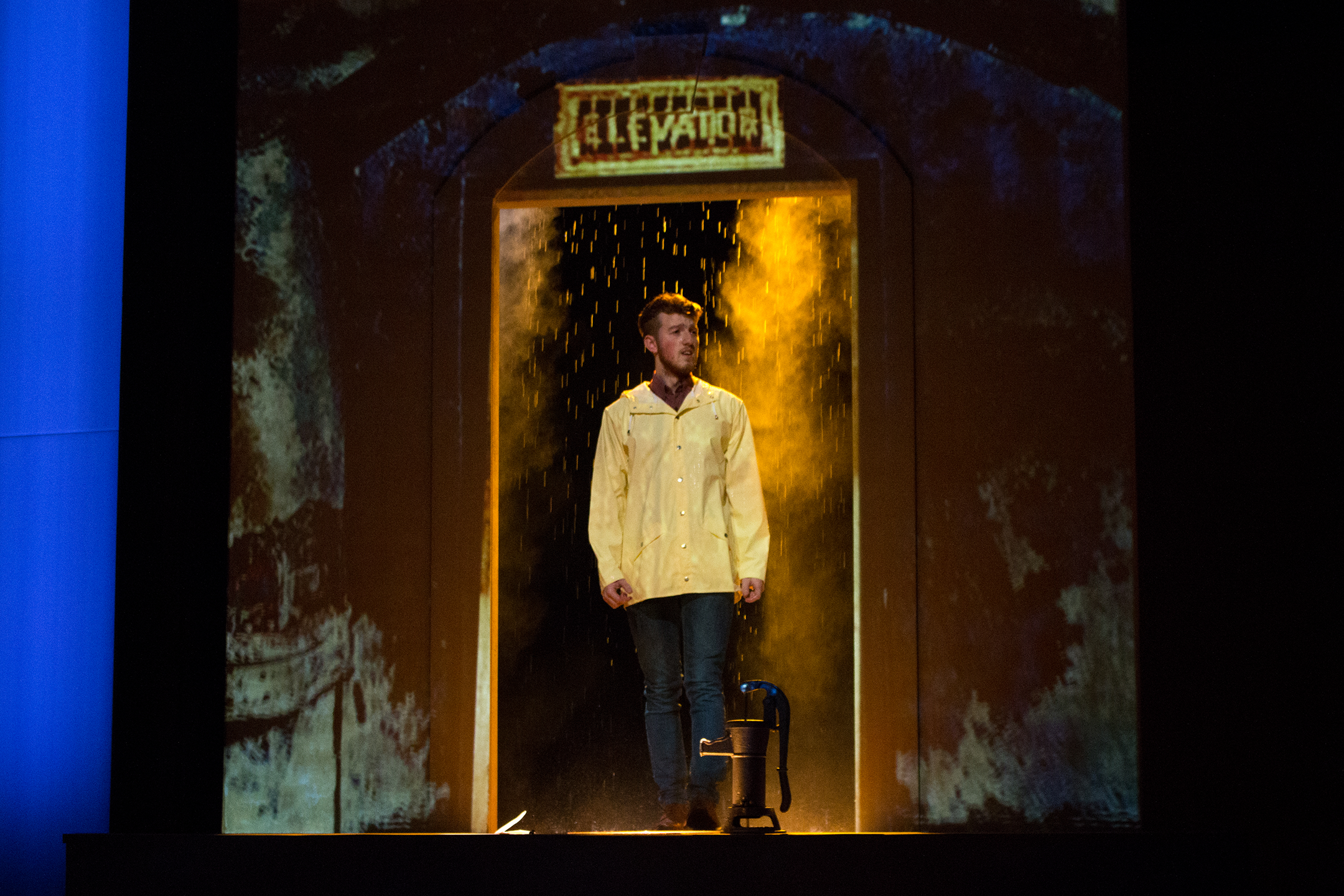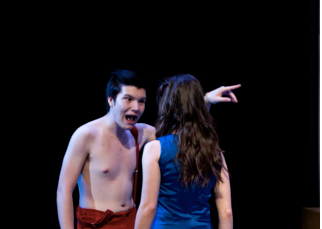Eurydice
The Greek myth of Orpheus and Eurydice is a sad tale of lost love and the power of music. After his love Eurydice is killed by snakebite, a grief-stricken Orpheus journeys to the land of the dead in an attempt to bring her back. His music and grief move Hades, King of the Underworld, so much so that he allows Orpheus to take Eurydice back with him under one condition: he must not look back at her. Of course he cannot help himself. Just as they are about to escape he looks back and Eurydice disappears forever.
In her play, Eurydice, Sarah Ruhl reframes the myth to focus not on the bereaved musician but on his dead bride. Choosing instead to explore the challenges facing a young woman who, while she loves Orpheus, does not want to become trapped by that love. Eurydice’s journey becomes a thought-provoking exploration of a young woman’s discovery of her essence, even as she is losing it.
Director Matt White was not interested in yet another male-dominant exploration of the tale. Instead Eurydice demanded to be taken as an equal; to become the Musician, not simply the instrument played. Rather than focus on why Orpheus turns back, the play imagines and endorses Eurydice’s ability to take control of a situation and willingness to sacrifice everything for her freedom.
Ruhl creates a fantastical world featuring an elevator that rains, water that sings, stones who talk and a house made out of string all of which resemble something more out of Lewis Carroll’s imagination than what we think of as classic Greek drama.
Check out our Dramaturgy hub for more info on the production and the myth.
Fall 2016 Production
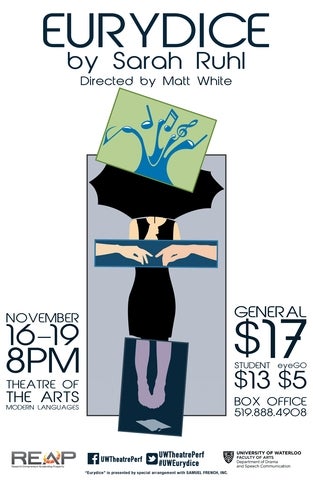
Director's Note
You could argue, as many have, that the myth of Orpheus and Eurydice is the ultimate tragic love story. It shows love’s power. It can do anything. It can stop Sisyphus. It can bring the Furies to tears. It can convince Hades to give Orpheus one more life with Eurydice. Sadly, the myth also teaches us that love can be undermined by man’s insecurities.
What I find most troubling about this myth other than Orpheus turning around – more of that later – is that the myth depicts a completely one-sided love affair. Nowhere in the original story do we see or hear how Eurydice feels or what she thinks. This is made worse when our hero turns around and she dies a second death! Not only did she not ask for him to come and find her in the Underworld, let’s presume for a moment that she was excited that she’d get to go on living, and then poof! He turns around. #EpicFailOrpheus
Renowned mythologist and writer Joseph Campbell believes the second function of myths are to “explain everything that you come into contact with in the universe”. I believe very much in this power of myth, of stories in general. They help us better understand the world. They help us organize the “monstrous mystery that is existence” (Campbell) and help provide meaning. What does that say about a world that continues to create, consume and celebrate countless films, operas, and paintings emphasizing Orpheus’ epic journey while reducing Eurydice to a prop; a prize to be won?
While Margaret Atwood’s Orpheus 1 attempts to at least let us get a glimpse of Eurydice’s perspective Sarah Ruhl goes further. With Eurydice Ruhl breathes new life into the myth. She gives her personality. Complexity. But most of all, she gives her agency. She is never portrayed as a “damsel in distress”. Instead Ruhl takes the time to show us how she learns – through stories, almost personal mini myths – how she can become a strong, independent woman.
We have to tell the narratives that support the vision of the world we want. While many would argue Ruhl’s play is still a tragedy I see it as being optimistic. Without giving too much away, I feel she has created a play that ends with a new beginning. That reflects a need to `unlearn` ourselves and the lessons handed down over thousands of years so that we can begin to see each other through fresh eyes.
-Matt White
Written by: Sarah Ruhl
Directed by: Matt White
Performances: November 16-19th, 2016
Matinees: November 16 & 17
Venue: Theatre of the Arts, Modern Languages Building
Cast List
Eurydice - Kelly Hornung
Orpheus - Erik Van Dijk
Eurydice's Father - Darius Hahn
Nasty Interesting Man / Lord of the Underworld - John Simon Krukowski
Little Stone - Alyssa Almeida
Big Stone - Mira J. Henderson
Loud Stone - Abbi Longmire
Creative Team
Director - Matt White
Set & Props Designer - Kelly Wolf
Costume Designer - Sharon E. Secord
Associate Costume Designer - Sandy Thi
Lighting & Video Designer - Paul Cegys
Associate Lighting Designer - Chelsea Vanoverbeke
Sound Designer - Colin Labadie
Supervising Dramaturg - Toby Malone
Vocal Coach - Meghan Bunce
Choreographer - Carin Lowerison
Production Team
Production Manager - Janelle Rainville
Technical Director - Gill Lesperance
Capstone Instructor - Jennifer Roberts-Smith
Stage Manager - Cody Burns
Assistant Stage Managers - Jaimie Bain & Brooke Barnes
Head of Carps & Paint - Jenn Addesso
Head of Props - Alyssa Almeida
Head of Wardrobe - Annaijah Dacres
Head of Lighting - Celena Alcock
Head of Video - Zach Haime
Sound Operator - Cameron Jolliffe
Followspot Operator - Nicole Reid
Head of Publicity - Carla Rodrigo
Dramaturgy Team - Vik Kovac, Sidney McMahon, Rebecca Reid, Kirk Stencell, Carla Rodrigo, Alice Wang
Production Students
Nada Abusaleh
Jessica Bertrand
Holly Bouillon
Adrienne Bruno
Alexandra Carruthers
Joanna Cleary
Taylor Howard
Lindsay McDonald
Dragomir Rabrenovic
Nicole Reid
Katrina Romanowich
Sean Yates
Supporting Artists
Video Content Extras
Jess Bertrand
Adrienne Bruno
Joanna Cleary
Gary Clift
Zac Gungl
Shelly Kraft
Ivy Liu
Lindsay McDonald
Katrina Romanowich
Zack Valdivia
Musicians
Kathryn Ladano
James Reesor
Greg Turner
Arie Vandeven
Daniel Wright
Special Thanks
Glenn Stillar
REAP
Joy Smith
Gerd Kuriskowski
Waterloo-Oxford DSS Music Dept
Zac Gungl
Berkeley White
Guy Donovan
Mark Fine, Air Magix
Mira J. Henderson
Anne May
Mark Haasnoot
Samuel Reeves
Katie Merrick
Cameron Smith
Iris Turcott
Bonnie & Peter White
